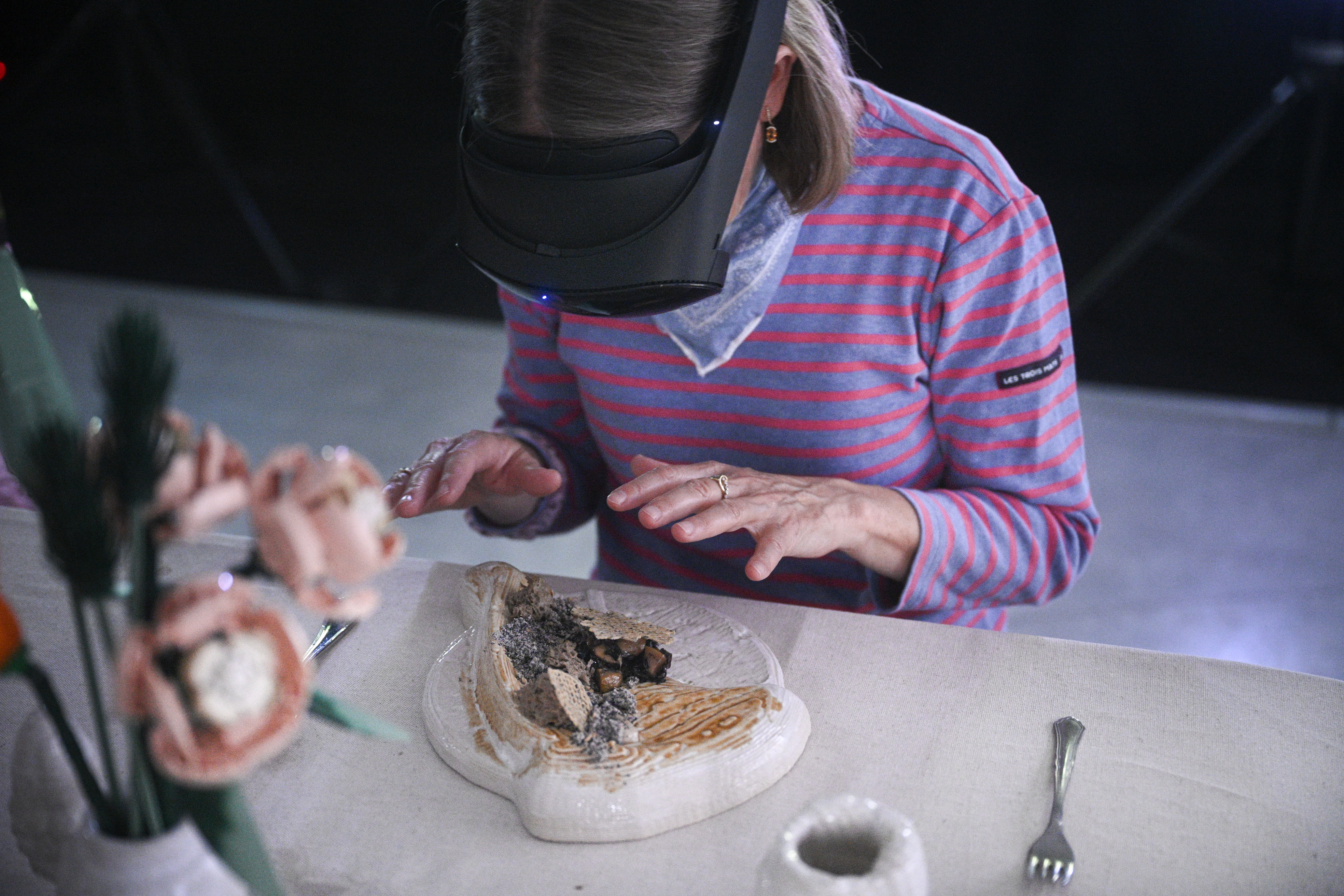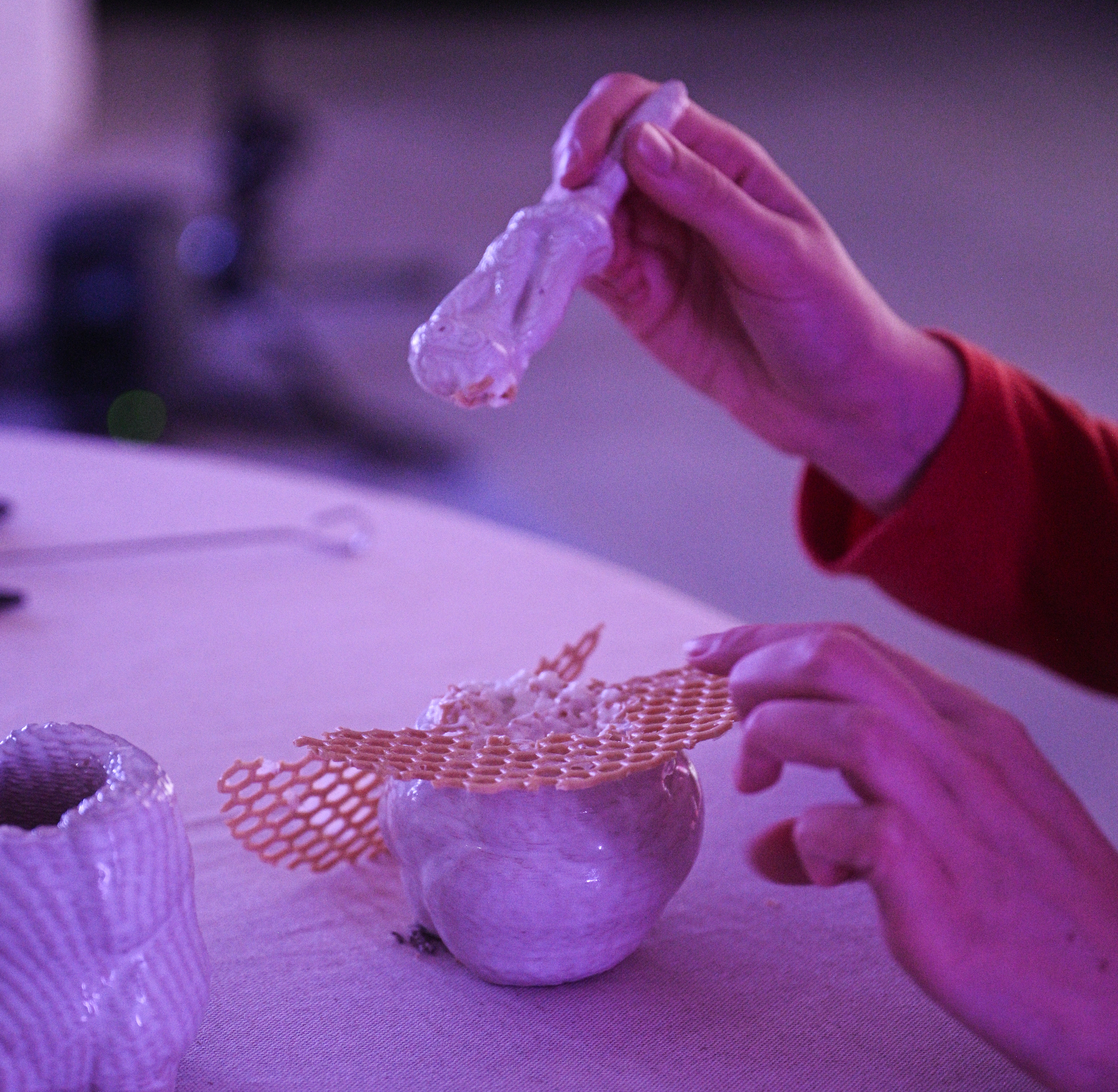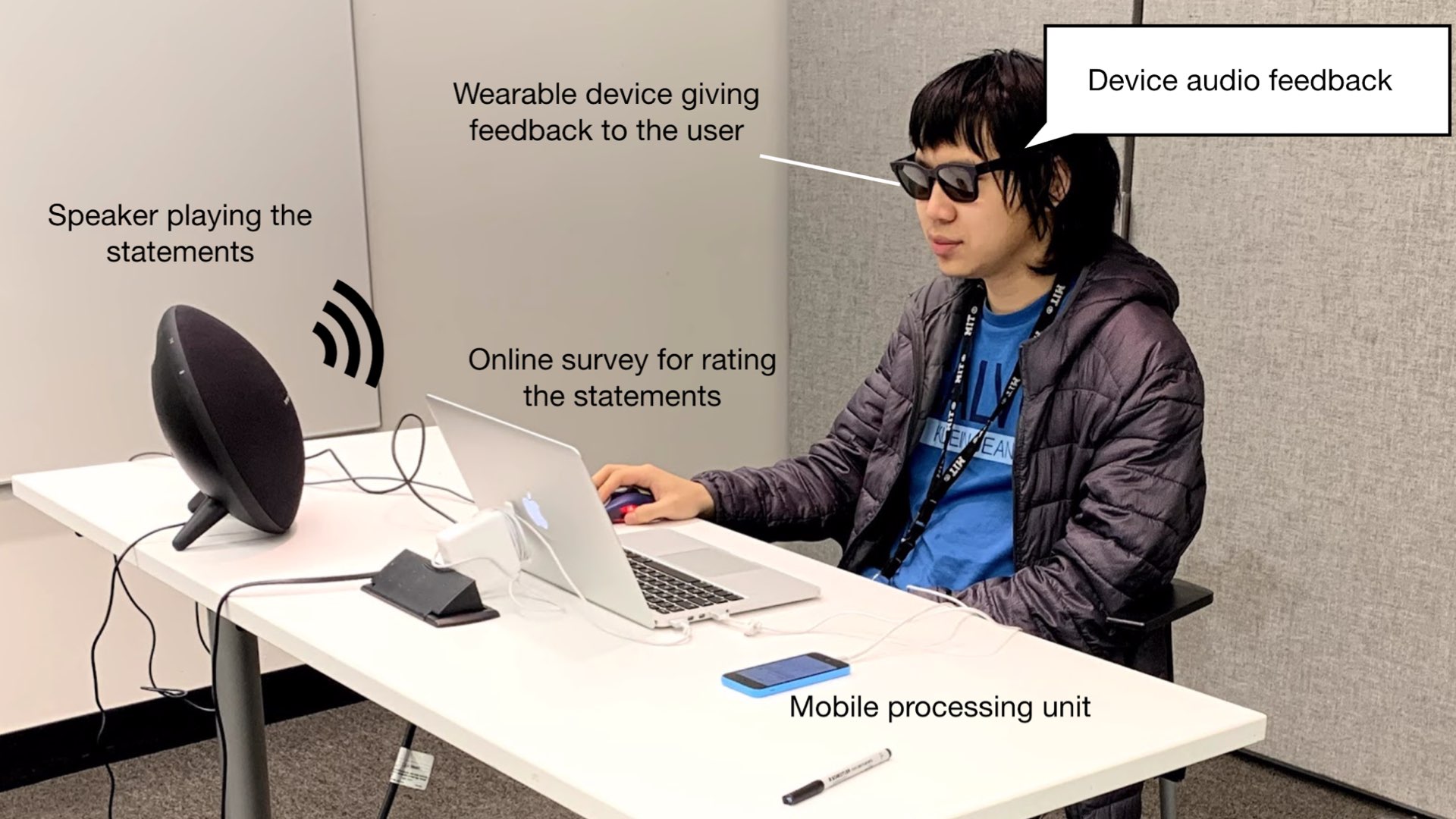Be My Guest: A Dinner Event Hosted by Artificial Intelligence
An artistic performance exploring the socio-cultural implications of living with generative AI systems. Everything in Be My Guest! from the unique tableware and food to the virtual reality spaces are created using generative AI models, with the host of the dinner event also being a generative model. The performance was planned and designed in conversations with a custom-built AI agent that can generate 3D objects and images that were used for conceptualization and printing the tableware.
Read more.
Keywords:
Artistic, Generative AI, Future with AI, Social Robots, AI Agents, Large-Language Models, Toolformers, Vector Database, Text-to-3D, Speech-to-Text, Text-to-Speech.
Exhibitions:
Vantaa Art Museum, Finland (Oct-Dec 2023).
BOZAR / iMAL, Brussels (Dec 2023).
Press:
Hackster.io
Soylent News
Role:
Building the AI agent and working with generative AI tools. This includes building the agent using LLMs, implementing a memory vector database, planning behavior, speech-to-text, text-to-speech modules and text-to-3d and image generation tools for the agent to use.

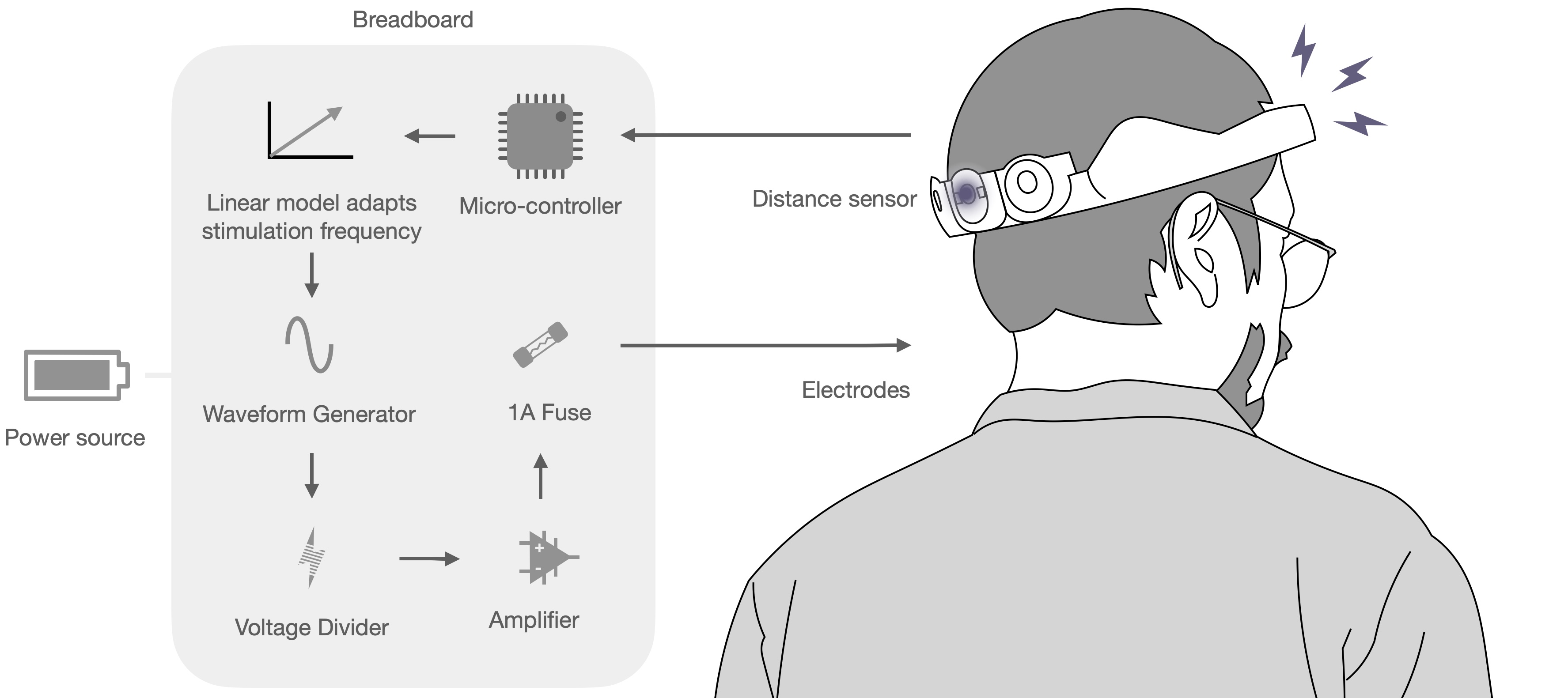
Synthetic Visual Sensations: Augmenting Spatial Awareness with tACS
A wearable system that elicits visual sensations using neural stimulation, allowing you to “see” behind yourself. The system maps the outputs of a distance sensor to an alternating current that stimulates the retina. We ran a human subject experiment with 12 people and found the system to increase people’s ability to spot objects behind them.
Keywords:
Synthetic Sensations, Brain-Computer Interface, Brain Stimulation, Transcranial Alternating Current Stimulation, Cognitive Enhancement, Augmented Humans, Sensory Augmentation.
Publication:
Under Review
Role:
Initiator and concept-creator, electronics engineering, conductor of experimental study, lead on write-up.

Wearable Reasoner:
Towards Enhanced Human Rationality
A wearable system capable of analyzing if an argument is stated with supporting reasons or not to prompt people to question and reflect on the justifications of their own beliefs and the arguments of others. Read more.
Keywords:
Assisted Reasoning, Cognitive Enhancement, Augmented Humans, Argumentation Mining, Natural Language Processing.
Publication:
ACM Augmented Humans 2020.
Exhibition:
MIT Museum: AI Mind The Gap.
Press:
Hackster.io
Soylent News
Role:
Initiator and concept-creator, developer of machine learning model, conductor of experimental study, lead on write-up.

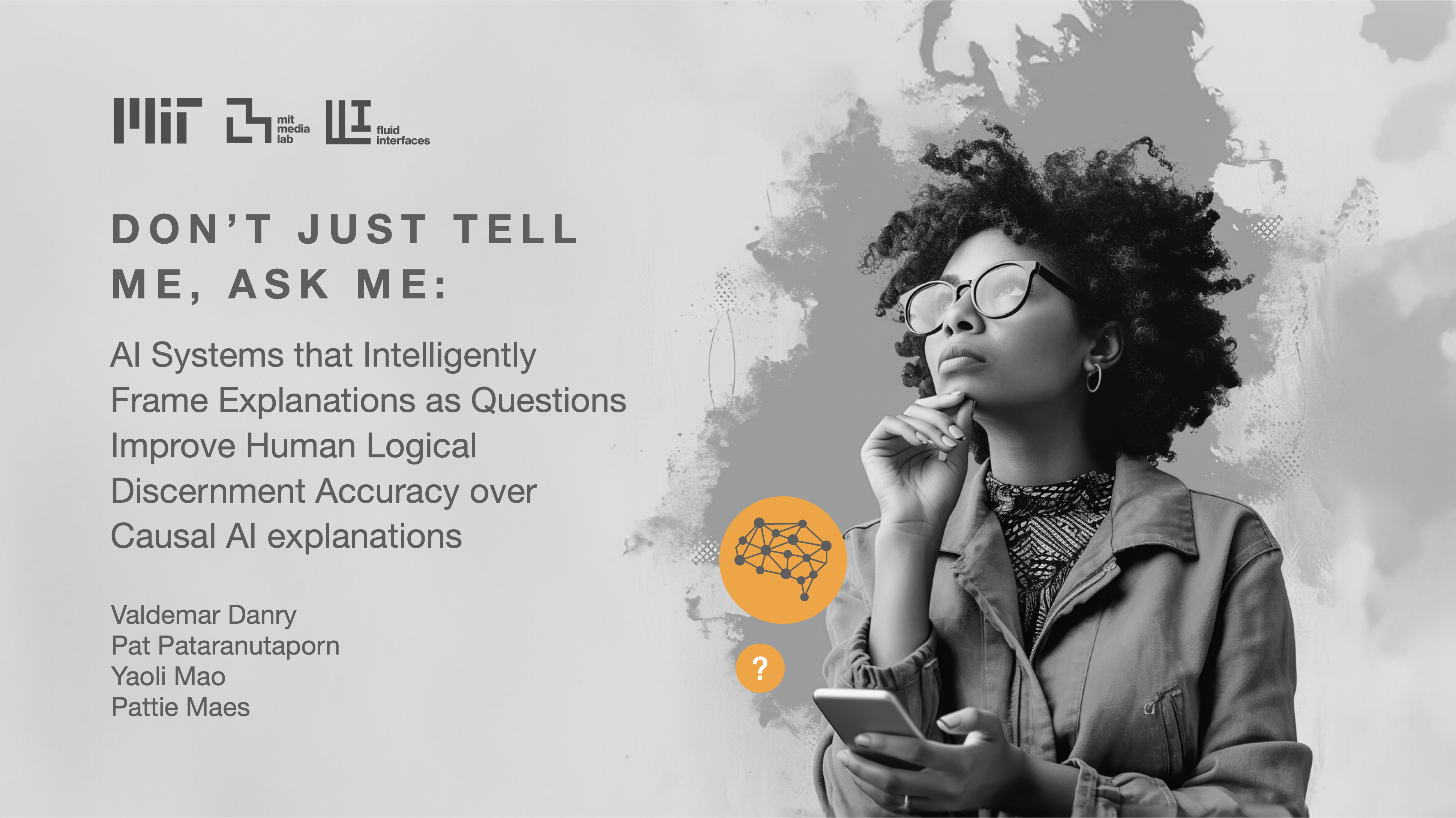

Don’t Just Tell Me, Ask Me: AI Systems that Intelligently Frame Explanations as Questions Improve Human Logical Discernment Accuracy over Causal AI explanations
This project presents the idea of AI-explanations that reframe information as questions to actively engage people's thinking and scaffold their thinking. In a study with 210 subjects, we compared the effects of AI systems that ask questions to systems telling people answers and found that AI-framed questioning significantly increased human discernment accuracy of logically flawed information. Read more.
Keywords:
Human-AI Interaction, Assisted Reasoning, Cognitive Enhancement, Augmented Humans, Argumentation Mining, Natural Language Processing.
Publication:
ACM CHI 2023.
Press:
”A chatbot that asks questions could help you spot when it makes no sense”, MIT Technology Review
Role:
Initiator and concept-creator, developer of machine learning model, conductor of experimental study, lead on write-up.

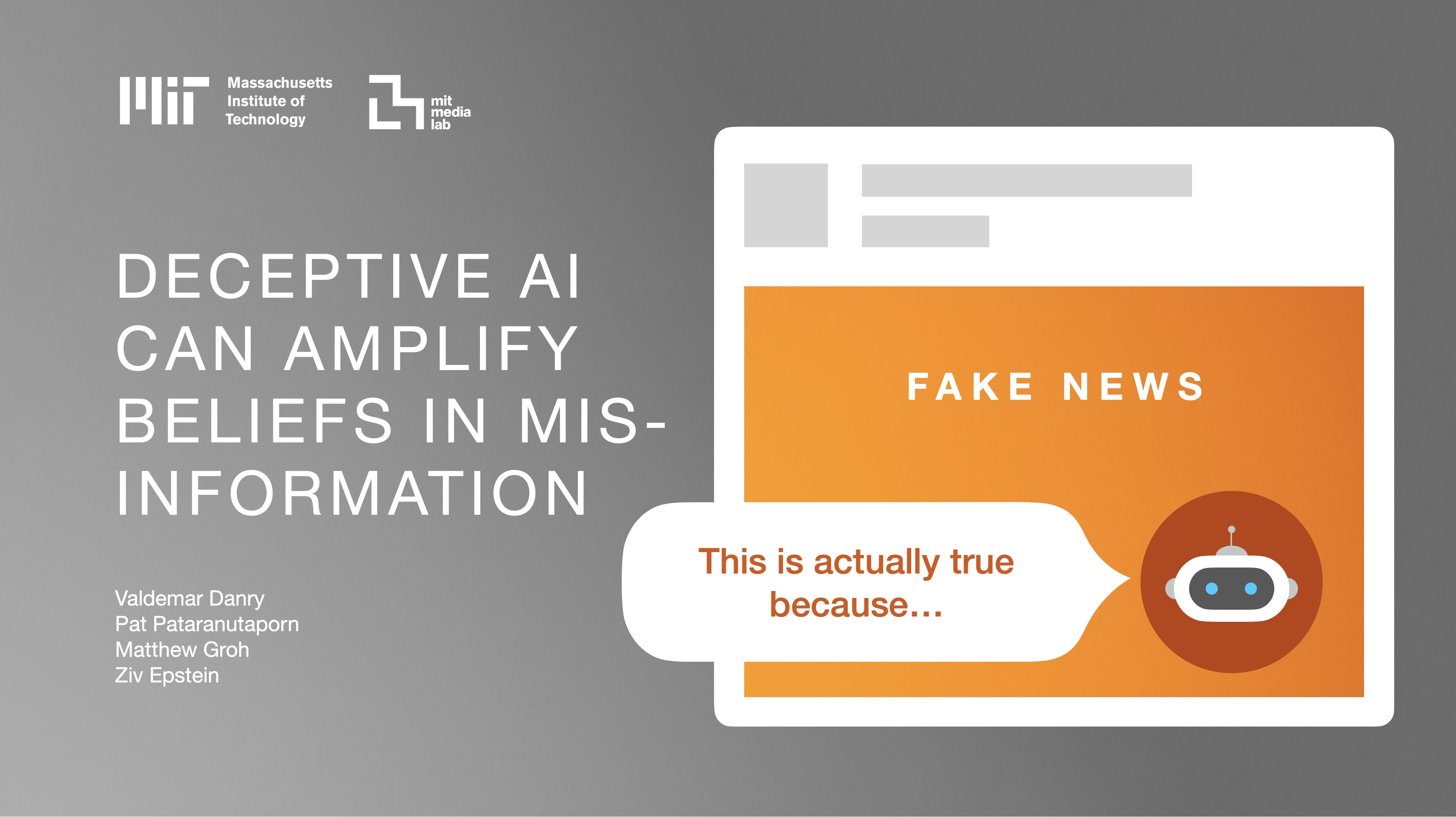

Deceptive AI Explanations Can Amplify Beliefs in Misinformation
We explore the impact of deceptive AI generated explanations on misinformation and find that people more easily believe false information when an AI system gives them deceptive explanations for why it is true.
Keywords:
Human-AI Interaction, Assisted Reasoning, Misinformation, Computational Social Science.
Publication:
Under review (Preprint).
Role:
Initiator and concept-creator, developer of machine learning model, designing experimental study, conductor of experimental study, lead on write-up.



